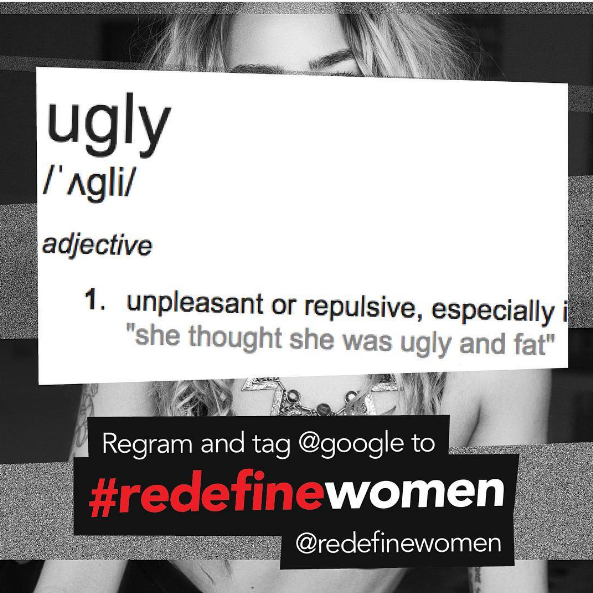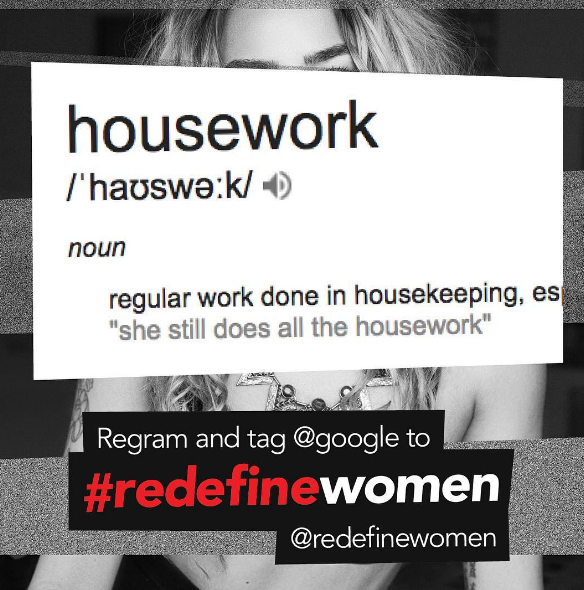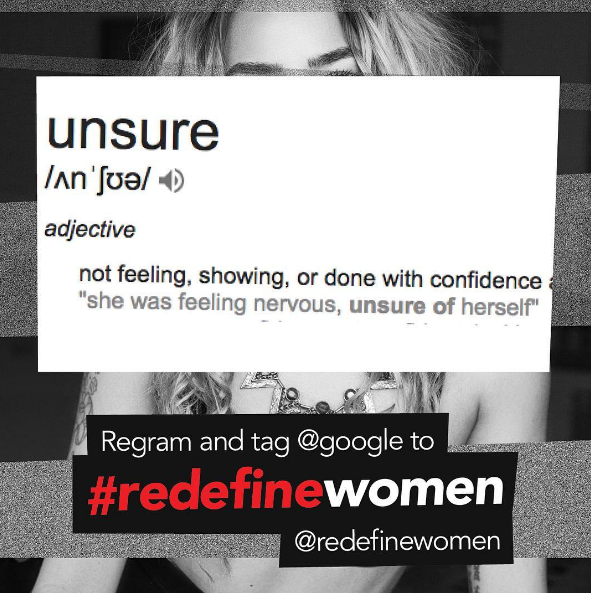
Feminists are declaring war on definitions for being “sexist.”
Georgia Patch and Kiah Nicholas, two women who work in advertising, have embarked on a campaign against Google for its allegedly sexist definitions.
The pair takes offense to the examples Google uses when it defines words in a sentence because some of the sentences just so happen to involve women.
Nicholas told Mashable Australia she first noticed there was an alleged problem with Google’s definitions when she was Googling the word “grating.”
"A couple of weeks back I stumbled across one — grating — and I noticed the sentence example, 'her grating voice' and I screen-grabbed it straight away,” she said.
She then sent the screencap to Patch, who agreed the definition was “objectively bad.”
“Kiah sent through this definition, and I thought it was objectively bad. We did a little more delving and searching, then we ended up stumbling on so many words ... we realised there was something fundamentally wrong that is being overlooked for far too long,” she explained.
"We just thought to ourselves that we can raise awareness around this, and try and get these definitions contemporised to be more accurate examples, that define women in a more positive light,” she continued.
To share their outrage, Patch and Nicholas created Tumblr, Instagram, and Twitter accounts, making sure to tag Google, to try to encourage the search engine to “Redefine Women.”
They told Pedestrian.tv, “Redefine Women is about changing perceptions of women starting with definitions. We're pro-equality, and we're always sharing ideas and our outrage at sexism in society. We realised that definitions were reinforcing prejudices against women.
Apparently, equality means only speaking positively about women and defeating sexism means replacing all of the negative definitions about women with men.
Some of the definitions the duo find problematic include “ugly,” “housework,” and “unsure”:

(Image source: Instagram)

(Image source: Instagram)

(Image source: Instagram)
A Google spokesperson told Mashable Australia that the search engine doesn't come up with the definitions that appear on Google.
The spokesperson said, “The definitions and sample sentences we provide come from the Oxford Dictionary of English and do not reflect Google's opinions or beliefs.”
However, despite using the Oxford Dictionary of English as a reference, the spokesperson said Google is “looking into the issue” because the two women had their feelings hurt.
"As a company, we strongly value gender equality and a diversity of perspectives, ideas and cultures. We are looking into the issue, but you can always give feedback on definitions you find unacceptable, so we can improve these results over time,” the spokesperson added.
